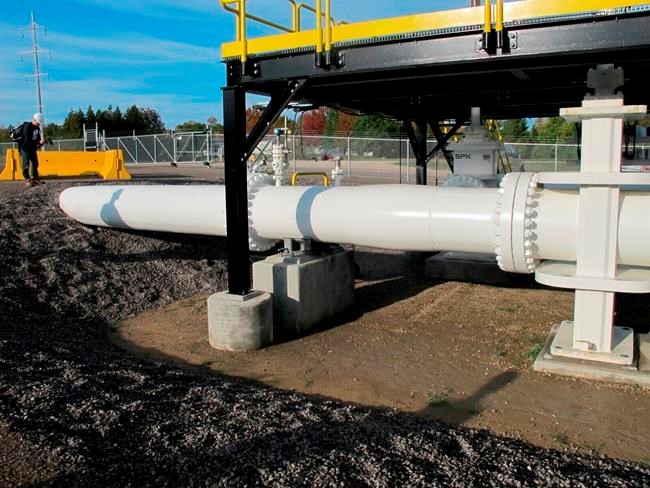WASHINGTON — The two sides in an enduring dispute over the cross-border Line 5 pipeline in Wisconsin are girding for battle again, this time in the U.S. Court of Appeals.Â
The Bad River Band of the Lake Superior Chippewa filed a notice of appeal Friday indicating they are unsatisfied with last month's lower court decision that put a three-year deadline on relocating the line.Â
Calgary-based owner and operator Enbridge Inc. has already filed its notice with the court, unhappy with district court Judge William Conley's conclusion that they've been trespassing on band territory since 2013.
The latest filing offers little insight into Bad River's case. Earlier court documents indicated the band was in the process of deciding whether to challenge "various aspects of the district court's decision."
But lawyers for the band made no secret last month of their disappointment with both the three-year timeline and the financial penalties imposed on Enbridge.
Conley allowed the pipeline to keep running for now, but ordered the company to cease operations on Bad River territory by June 16, 2026, and to share its profits with the band, starting with a US$5.1-million back payment.
Enbridge plans to build a 66-kilometre detour around the reserve to replace the contested 19-kilometre stretch that runs directly through it, but is worried about whether the permitting process will be done in time.
The company said the timing depends on decisions by the Wisconsin Department of Natural Resources and the U.S. Army Corps of Engineers, expected in 2025. Relocating the pipe is expected to take about a year.
The band has been fighting Enbridge in court since 2019, saying the company lost permission to operate on the reservation in 2013. Conley agreed; Enbridge insists a 1992 agreement with the band allowed it to keep operating.
But the judge was wary of an immediate shutdown, citing the risk of dire economic consequences, lingering fuel shortages in the Midwest, Ontario and Quebec and a lasting scar on Canada-U.S. relations.
The band's lawyers have said three years is too long to wait, given the risk of a spill in a key Lake Superior watershed, and the financial award too small to prevent companies from exploiting Indigenous bands in the future.Â
Enbridge, meanwhile, plans to argue at appeal that its 1992 contract with the band constituted consent for Line 5 to operate on the reserve through 2043.Â
Environmental groups call the 70-year-old pipeline a "ticking time bomb" with a dubious safety record, despite Enbridge's claims to the contrary.
Neighbouring Michigan has also been waging war on Line 5, fearing a leak in the Straits of Mackinac, the waterway where the pipeline crosses the Great Lakes. That case is also under appeal.Â
Line 5 carries 540,000 barrels of oil and natural gas liquids daily across Wisconsin and Michigan to refineries in Sarnia, Ont.
Defenders say a shutdown would cause major economic disruption across the Prairies and the U.S. Midwest, where it provides feedstock to refineries in Michigan, Ohio and Pennsylvania.
It also supplies key refining facilities in Ontario and Quebec, and is vital to the production of jet fuel for major airports on both sides of the border, including Detroit Metropolitan and Pearson International in Toronto.
This report by The Canadian Press was first published July 28, 2023.
James McCarten, The Canadian Press




